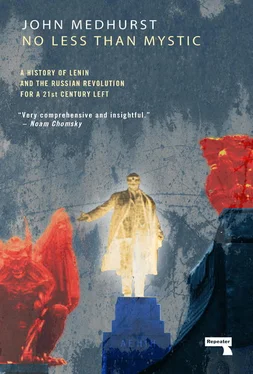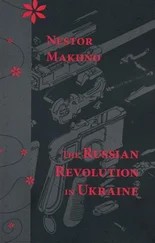This supported Engels’ controversial theory of a “Labour Aristocracy”, i.e. a particularly well-paid segment of the working class that as a result of relative prosperity internalised the values and priorities of the bourgeoisie, and through its strategic influence within the labour movement kept a cap on the more discontented elements of the working class. Reversing Marx, Lenin asserted that it was capitalism’s very development that was responsible for the failure of a revolutionary proletariat to emerge. Something else was needed to break the log jam. That something else was revolutionary will.
If Imperialism was Lenin’s most significant public contribution to Marxism, then his Philosophical Notebooks , written in private during the war, are an undeclared shadow doctrine and the secret driver of his actions. Marooned in Berne and Zurich he had more time than usual to devote to intellectual work. Whilst Europe burned he delved deeply into Marx’s philosophical mentor Hegel, as well as Aristotle and the classical philosophers. Until then Hegel’s intellectual influence on Marx had been noted but politely ignored by most Marxists. In 1916 Lenin threw himself into Hegel’s Logic and Philosophy of History and came to some surprising conclusions.
In his notebooks (which although subsequently published in Soviet Russia as the Philosophical Notebooks reflect their informal and unedited nature), he wrote:
“Aphorism: It is impossible to obtain a complete understanding of Marx’s Das Kapital […] without having made a thorough study and acquired an understanding of the whole of Hegel’s Logic. Consequently not one Marxist in the past half century has completely understood Marx”. 10
Aside from his astonishing claim that no Marxist except himself had understood Marx because they had not spent a few weeks in a Swiss library reading Hegel’s Logic , he concluded, “Dialectics is the teaching which shows how opposites can be and how they happen to be (how they become) identical — under what conditions they are identical, become transformed into one another”. Pursuing his theme, he asked himself “What distinguishes the dialectical transition from the undialectical transition? The leap. The contradiction. The interruption of gradualness. The unity, the identity of Being and not-Being”. 11
Intellectually Lenin was girding himself for a “leap”, a “contradiction”, a massive “interruption of gradualness”. Yet Marx himself, foreseeing the temptations and limits of revolutionary adventurism, had warned in 1844, “The more one-sided, and thus the more perfect political intelligence is, the more it believes in the omnipotence of the will, the blinder it is to the natural and intellectual limits of the will, and thus the more incapable it is of discovering the sources of social evils”. 12Lenin might have done better, during his quiet war years, to restudy Marx rather than Hegel.
As soon as he received news of the February Revolution, Lenin was desperate to return to Russia. To do so he had to navigate across a war-torn continent. After a secret deal with the German government he and his entourage were allowed to traverse Germany in the infamous “sealed train”, arriving at the Finland Station in Petrograd on 4th April. He returned to a Russia torn by internal strife. The new Prime Minister, Prince Lvov, who as leader of the Zemstvo Union had great experience of practical administration but very little of party politics, saw the February Revolution as the first step to a constitutional democratic order based on an extension of the franchise and civil rights. His government had already abolished capital punishment and overhauled the courts and legal system, as well as providing for elections to a Constituent Assembly. It had also abolished all existing anti-Semitic statutes and opened up massive new social opportunities for the Jews of the Empire, attracting at one stroke an intense level of loyalty and support from liberal and socialist Jews.
In March a delegation of Russian suffragettes met Lvov to plead for the right of women to vote in the elections to the reformed Zemstvos. They did not need to produce their carefully rehearsed arguments, for Lvov simply asked them, “Why shouldn’t women be allowed to vote? I don’t see what’s the problem”, 13after which women were granted the right to vote in Zemstvos and city Duma elections. The issue of equal suffrage for the Constituent Assembly elections produced some reactionary opposition but the democratic momentum was unstoppable. In July a Special Conference for the Electoral Law for the Constituent Assembly proposed to give the vote to all adults over 20 years of age and the Provisional Government, then led by Kerensky, agreed to this. Russia thereby became the only belligerent in WWI with universal suffrage.
When Lenin arrived in Petrograd he found a Bolshevik Party that had adapted to this new reality. For a while the party in St Petersburg had been rudderless, but soon senior Bolsheviks such as Sverdlov, Stalin and Kamenev arrived from Siberian exile to take over from Molotov and Shliapnikov. They used Pravda to communicate with Bolshevik militants in the factories and Soviets. Faced with a popular revolution and the power of the Petrograd Soviet, Bolshevik leaders in Russia issued their first communication in the 28th March issue of Pravda . This urged: a) unification with the Left Mensheviks, and b) support for the Provisional Government as long as it carried out the programme agreed with the Soviet. It did not advocate Lenin’s “revolutionary defeatism”. On the contrary, now that a popular revolution had removed the Tsar’s government the Bolsheviks edged towards the kind of “revolutionary defencism” advocated by Menshevik leaders such as Isaac Tseretelli. On this basis Tseretelli proposed complete unification of Bolsheviks and Mensheviks within one party. Many Bolsheviks were inclined to agree.
Lenin was not. After being greeted at the Finland Station by a large crowd (all returning socialist leaders received a similar welcome) he immediately set to work to drag the Bolsheviks away from any support, however qualified, for the Provisional Government. His first speech to assembled Bolsheviks from the balcony of their temporary HQ assured them that working-class revolution was imminent in France, Germany and England. It was therefore in order for Russian socialists to push the bourgeois revolution of February into a socialist phase, secure in the knowledge that it would not be isolated and would act as an outlier for a larger Europe-wide revolution.
After this he went inside and brutally lambasted the leaders of the party. He completely repudiated any support for the Provisional Government and for the non-Bolshevik majority in the Soviet. “Only the Zimmerwald Left stands guard over the proletarian revolution!” he declared. The Menshevik historian Sukhanov, invited to attend the gathering as an observer, was perfectly placed to record the meeting. “I’ll never forget the thunderous speech, startling not only to me, a heretic who had accidentally dropped in, but also to the faithful–all of them”, Sukhanov later wrote. “It seemed as if all the elements of universal destruction had arisen from their lairs, knowing neither barriers nor doubts, personal difficulties nor personal considerations”. 14
The next day Lenin attended a conference at the Tauride Palace called to consider the unification of Bolsheviks and Mensheviks. He swept the initiative aside with contempt. He not only rejected a united RSDLP but also, for the first time in front of a non-Bolshevik socialist audience, explained his conception of the Russian revolution. He called for the replacement of the Provisional Government with a government of workers’ and soldiers’ deputies as the first step towards European revolution. His speech was received with amazement by most of the delegates, including the Bolsheviks. Many booed. Some laughed. Bogdanov, whom Lenin had removed from editorship of Proletary in 1909, shouted, “This is the delusion of a lunatic!” 15
Читать дальше












